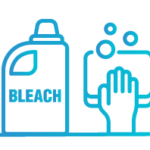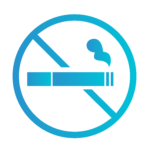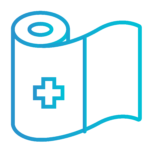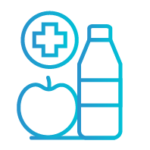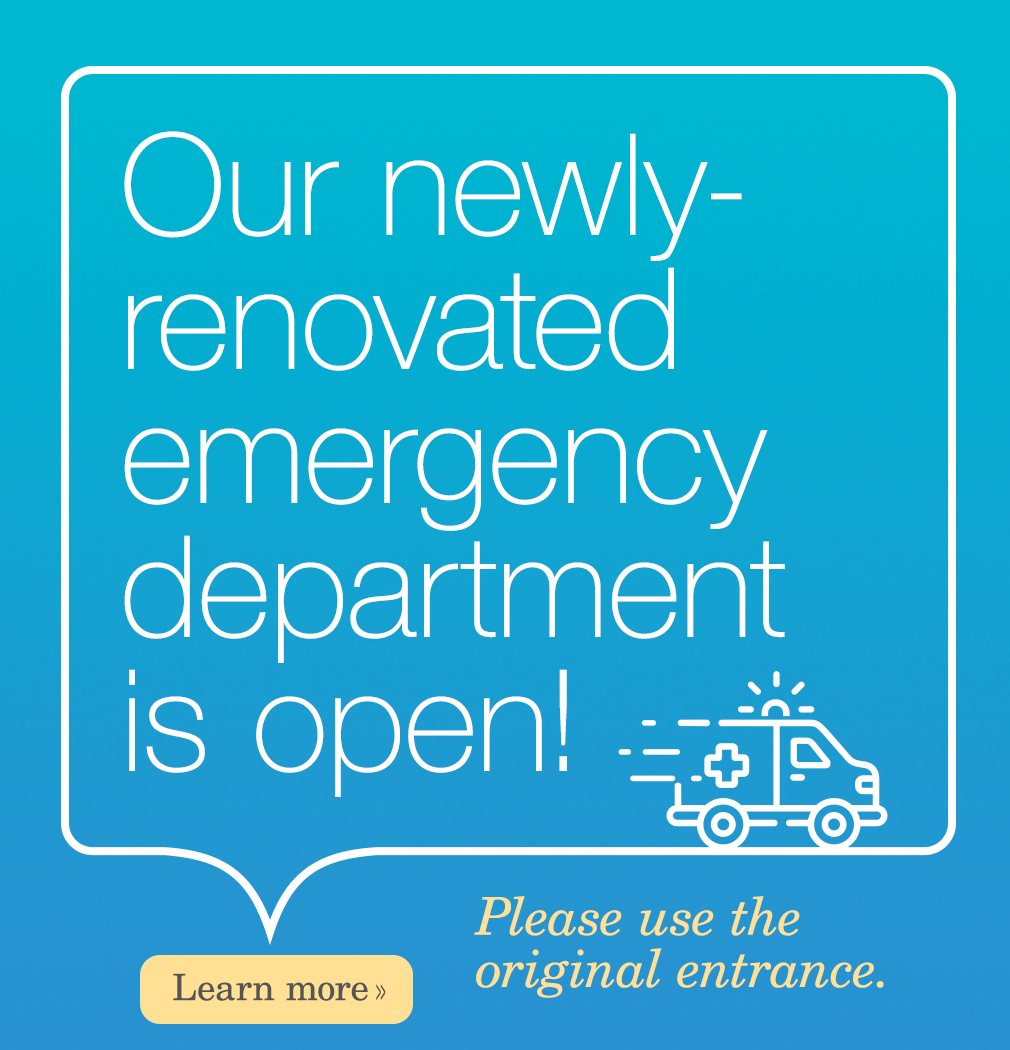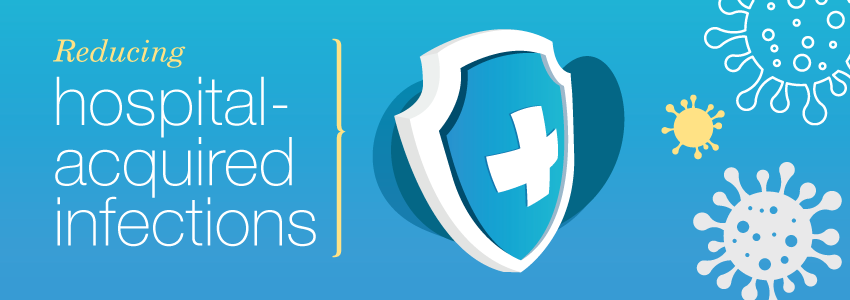

While no one goes to the hospital expecting to get an infection, healthcare procedures and simply time spent in the hospital while you’re being treated for something else can put you at risk. These hospital-acquired infections (HAI) include catheter-acquired urinary tract infections, clostridioides difficile infections or C. Diff (a bacteria that causes life-threatening diarrhea and is usually a side-effect of taking antibiotics), surgical site infections and pneumonia. Here at NMC, we are working hard to keep infection rates down and keep you safe.
What is NMC measuring?
Catheter-acquired urinary tract infections
A urinary tract infection (UTI) is an infection of any part of your urinary system. Nationwide, roughly 75% of hospital-acquired UTIs are associated with the use of urinary catheters. These catheters can allow germs into the urinary tract if they’re not properly placed or maintained. Further, a patient’s risk of a catheter-acquired UTI increases by 5% each day the catheter is in place. At NMC, our goal is to prevent unneeded urinary catheter placement and to remove the catheter as soon as a patient no longer needs it.
C. Diff
C. Diff (or Clostridium difficile) is a bacterium that causes severe diarrhea and inflammation of the colon and is easily spread by contact with contaminated objects, hands or surfaces. While anyone can acquire C. Diff, people who are hospitalized, being treated with antibiotics, or those with a weakened immune system are at a greater risk. At NMC, our goal is to prevent all C. Diff infections.
Surgical site infections
Surgical Site Infections (SSIs) are infections related to a surgery that occurs at or near the surgical incision. While SSIs occur in 2–4% of all patients undergoing inpatient surgical procedures, they’re considered preventable through appropriate administration of preventative antibiotics, proper skin preparation, maintenance of sterile conditions and by delaying elective surgeries when patients have an active infection. At NMC, our goal is to prevent all SSIs.
Pneumonia
Hospital-Acquired Pneumonia (HAP) is a substantial cause of morbidity and mortality, and adds billions to US medical costs annually. The Centers for Disease Control and Prevention (CDC) notes that HAP accounts for about 21.8% of all hospital-associated infections and occurs in all age groups, on all types of hospital units, and in all types of hospitals.
How is NMC doing?
Below is a snapshot of some hospital-acquired infections. NMC is measuring instances of all these infections and our process changes are showing marked improvements.
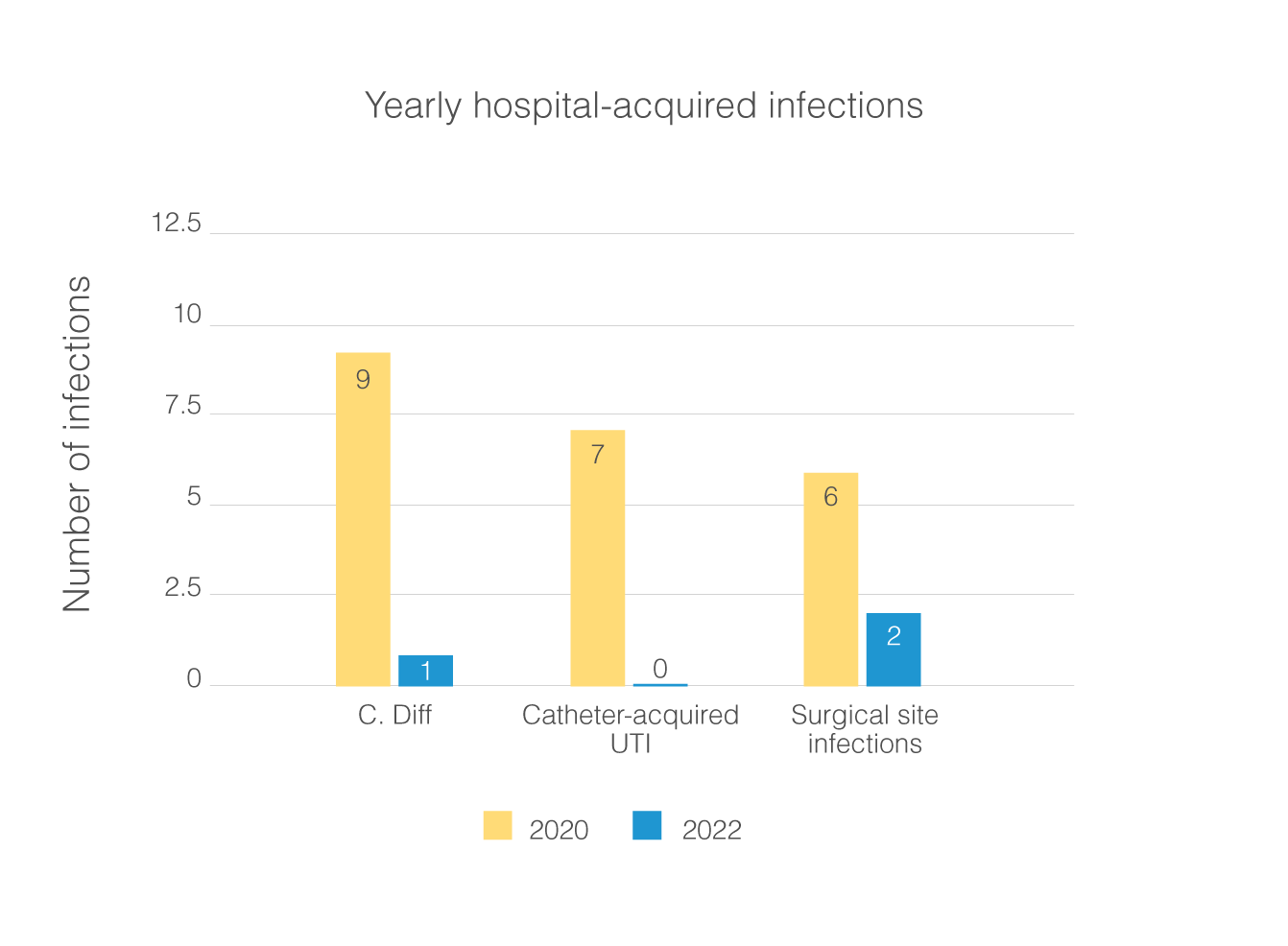
What is NMC doing to improve?
Educating our nurses
Education around the appropriate use of urinary catheters and proper sterile techniques are provided to all nurses with patient care responsibilities. Only trained nursing staff place and maintain urinary catheters. Nurses are also educated on C.Diff protocols and prevention of surgical site infections.
Daily safety briefings
All urinary catheter placements, patients with C.Diff and any significant safety issue like serious infection risks are reported during the daily safety brief. For catheters, the brief always involves a discussion that helps ensure catheter placement is appropriate and is discontinued promptly when no longer needed.
What can patients & visitors do to help?
Patients and their visitors can reduced the risk of a hospital-acquired infection by asking and reminding healthcare providers to clean their hands. Your hands can spread germs too, so protect yourself by cleaning your hands often.
When should I wash my hands?

Before eating food

Before and after touching your eyes, nose, or mouth

Before and after changing bandages or touching a catheter
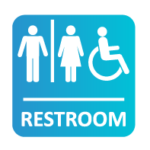
After using the restroom

After blowing your nose, coughing, or sneezing

After touching hospital surfaces such as bed rails, bedside tables, doorknobs, remote controls, or the phone
In addition to cleaning your own hands, ask those around you to do the same.
Don’t be afraid to speak up—we welcome your input! Here are some nice ways to remind your visitors and the people treating you:
- “I didn’t see you clean your hands when you came in, would you mind cleaning them again before you examine me?”
- “I’m worried about germs spreading in the hospital. Will you please clean your hands once more before you start my treatment?”
- “I saw you clean your hands when you arrived some time ago, but would you mind cleaning them again?”
How can I reduce the risk of catheter-acquired urinary tract infections?
Because hospital-acquired urinary tract infections are most often caused by the placement or presence of a catheter in the urinary tract, patients should consider taking the following precautions:
How can I reduce the risk of C. Diff?
While C. Diff is contagious, you can help keep others from getting it:
How can I reduce the risk of surgical site infections?
There are steps you can take to help make infection of your surgical site less likely:
Before surgery:
After surgery:
How can I reduce the risk of pneumonia?
Hospital-acquired pneumonia typically develops in patients who are on a ventilator. For those patients, family and friends can do the following things to help prevent it:
Helping our patients understand safety measures and data
Please reach out to us with any questions or concerns about what Northwestern Medical Center is doing to keep patients safe. It is important that we all work together to prevent infections and attain the best possible health outcomes.








